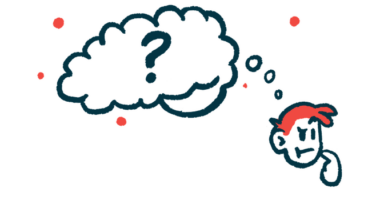WVE-004 Trial in Patients With C9orf72 Mutations Gains Funding

Wave Life Sciences has gained additional financial support for an ongoing “basket” Phase 1b/2a clinical trial evaluating its experimental therapy, WVE-004, in people with amyotrophic lateral sclerosis (ALS) and/or frontotemporal dementia (FTD) caused by mutations in the C9orf72 gene.
So-called basket trials, commonly used in the field of cancer, test a single therapy in people with distinct diseases that have a common molecular cause.
Wave’s trial, called FOCUS-C9 (NCT04931862), marks the first basket study in neurologic conditions. Launched in mid-2021, the trial is currently recruiting adults, ages 18–80, at sites in Europe, Canada, and Australia; more information on enrollment can be found here.
The new funding was granted by the Association for Frontotemporal Degeneration (AFTD) and the Alzheimer’s Drug Discovery Foundation (ADDF) through their joint Treat FTD Fund, which provides up to $2 million in funding based on the stage and scope of the trial. No specific amount was announced for the WVE-004 trial. The Treat FTD Fund is designed to support early-stage trials of treatments or devices for FTD-related disorders.
The investment will support the evaluation of functional assessments and fluid and digital biomarkers in FOCUS-C9, which may help identify clinically meaningful measures to inform the development of treatments for FTD and potentially ALS.
“AFTD is proud to support, through the Treat FTD Fund, this innovative and potentially significant clinical trial,” Susan L-J Dickinson, AFTD’s CEO, said in a press release.
“We are grateful to the panel of experts from ADDF and AFTD for their support and acknowledgement of the innovative approach we’ve taken to rapidly progress our clinical program,” said Michael Panzara, MD, Wave’s chief medical officer and head of therapeutics discovery and development.
“In addition to advancing WVE-004 as a novel, genetically-targeted treatment for FTD and ALS, we are looking forward to sharing the many learnings that will emerge from this trial with the broader medical and scientific communities,” Panzara added.
ALS and FTD, a progressive neurodegenerative disease that affects behavior, personality, and language, share some genetic and clinical features.
One of the most common genetic causes of both conditions is too many repeats of six nucleotides — GGGGCC — in the C9orf72 gene. Of note, G stands for guanine and C for cytosine, two of the four building blocks of DNA.
While healthy people might have up to 30 copies of this sequence, ALS and FTD patients can carry hundreds or even thousands of copies.
The C9orf72 gene normally generates three variants of messenger RNA (mRNA) — the molecule derived from DNA that guides protein production — called V1, V2, and V3. Excessive repeats in V1 and V3 lead to the generation of abnormal proteins, called dipeptide repeat proteins (DPR), that can form toxic clumps and contribute to neurodegeneration.
WVE-004 is an antisense oligonucleotide (ASO) that works by selectively marking the V1 and V3 mRNA molecules for destruction, leaving only the healthy V2 protein to produce normal C9orf72 proteins in the brain and spinal cord.
Designed with Wave’s proprietary chemistry platform, this ASO has optimized pharmacological properties, including greater stability, durability, and improved cellular uptake, activity, and selectivity.
Previous studies in a mouse model showed that WVE-004 resulted in pronounced and sustained reductions in DPRs levels in both the brain and spinal cord, further suggesting that the therapy may slow or prevent further neurodegeneration in people with C9orf72-associated ALS and FTD.
The six-month FOCUS-C9 study is evaluating the therapy’s safety, tolerability, pharmacokinetics — the medication’s movement into, through, and out of the body — and pharmacodynamics, which comprises its effects on the body. It is assessing single and multiple ascending doses of WVE-004 against a placebo in about 50 people with ALS, FTD, or ALS with FTD, who have C9orf72 repeat expansions.
The therapy is being administered directly into the spinal canal, which contains the liquid that surrounds the brain and spinal cord, called cerebrospinal fluid (CSF). Four dose levels are planned, but dose escalation and frequency will be guided by an independent committee based on trial data as they emerge.
The researchers also will assess changes in CSF DPR levels and in exploratory biomarkers and clinical outcomes.
FOCUS-C9 is expected to be completed in February 2023.







